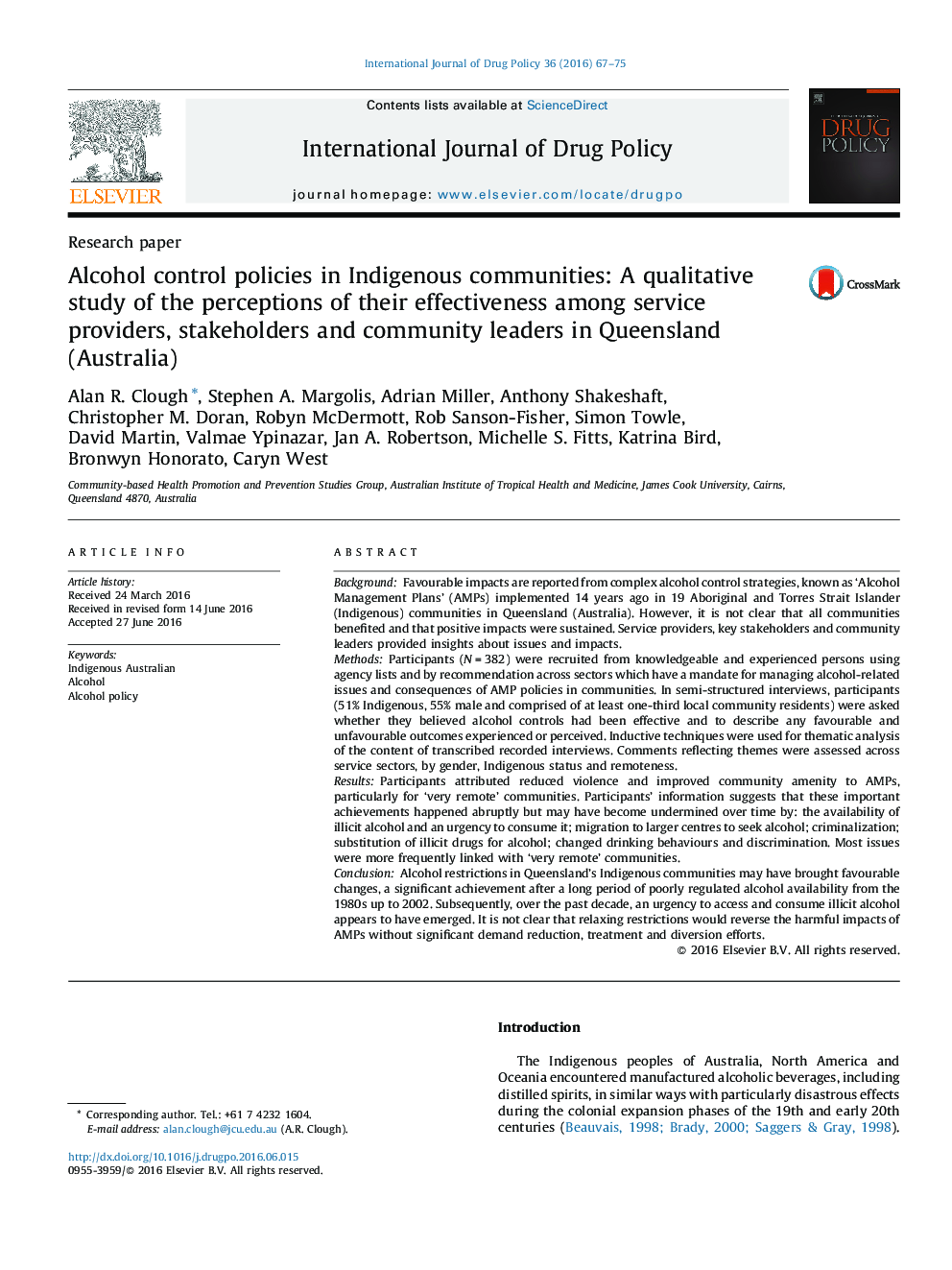| کد مقاله | کد نشریه | سال انتشار | مقاله انگلیسی | نسخه تمام متن |
|---|---|---|---|---|
| 1074928 | 1486269 | 2016 | 9 صفحه PDF | دانلود رایگان |
BackgroundFavourable impacts are reported from complex alcohol control strategies, known as ‘Alcohol Management Plans’ (AMPs) implemented 14 years ago in 19 Aboriginal and Torres Strait Islander (Indigenous) communities in Queensland (Australia). However, it is not clear that all communities benefited and that positive impacts were sustained. Service providers, key stakeholders and community leaders provided insights about issues and impacts.MethodsParticipants (N = 382) were recruited from knowledgeable and experienced persons using agency lists and by recommendation across sectors which have a mandate for managing alcohol-related issues and consequences of AMP policies in communities. In semi-structured interviews, participants (51% Indigenous, 55% male and comprised of at least one-third local community residents) were asked whether they believed alcohol controls had been effective and to describe any favourable and unfavourable outcomes experienced or perceived. Inductive techniques were used for thematic analysis of the content of transcribed recorded interviews. Comments reflecting themes were assessed across service sectors, by gender, Indigenous status and remoteness.ResultsParticipants attributed reduced violence and improved community amenity to AMPs, particularly for ‘very remote’ communities. Participants’ information suggests that these important achievements happened abruptly but may have become undermined over time by: the availability of illicit alcohol and an urgency to consume it; migration to larger centres to seek alcohol; criminalization; substitution of illicit drugs for alcohol; changed drinking behaviours and discrimination. Most issues were more frequently linked with ‘very remote’ communities.ConclusionAlcohol restrictions in Queensland's Indigenous communities may have brought favourable changes, a significant achievement after a long period of poorly regulated alcohol availability from the 1980s up to 2002. Subsequently, over the past decade, an urgency to access and consume illicit alcohol appears to have emerged. It is not clear that relaxing restrictions would reverse the harmful impacts of AMPs without significant demand reduction, treatment and diversion efforts.
Journal: International Journal of Drug Policy - Volume 36, October 2016, Pages 67–75
